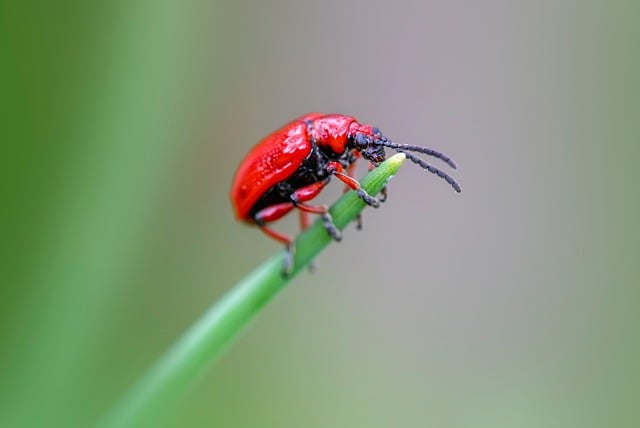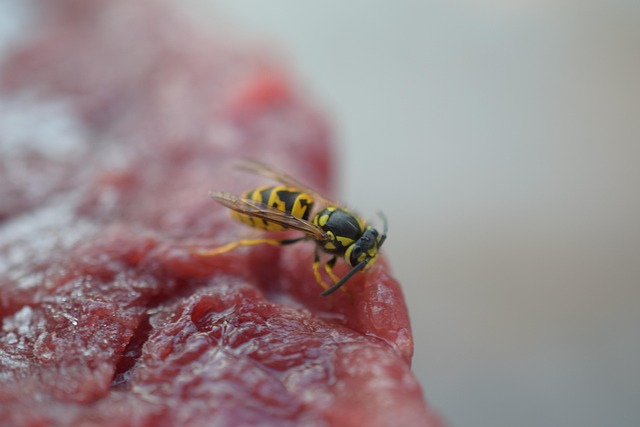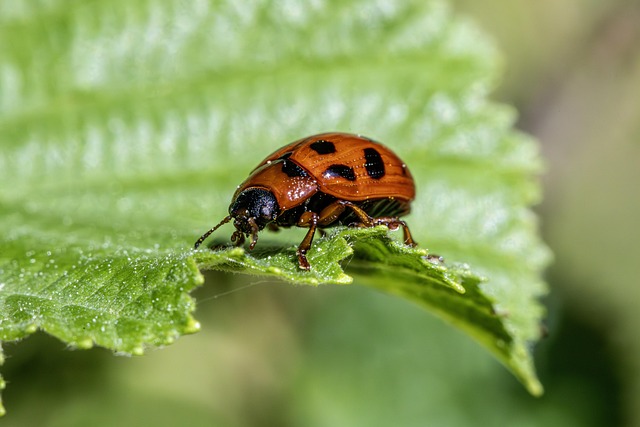In real estate inspections, a musty smell indicates potential mold or pests. Inspectors use scent tracking and professional methods to locate and resolve issues. Persistent odors may signal complex problems like water leaks or hidden breeding grounds. To address a musty smell in a Wheat Ridge basement, check for moisture, inspect walls and ceilings, and seal entry points. Regular inspections, cleanliness, and preventive measures are crucial for pest control.
When buying or selling a home in Wheat Ridge, proper pest control during real estate inspections is essential. This article guides you through understanding the importance of these checks, especially when detecting musty smells—a common indicator of pest infestations. Learn how to identify common pests lurking in your basement and discover effective strategies for prevention and management. If you notice a musty smell, delve into this guide to find the source and address it promptly with professional pest control measures.
- Understanding Pest Control During Real Estate Inspections
- Detecting Musty Smells: Identifying Common Pests in Basements
- Effective Strategies for Preventing and Managing Pests in Wheat Ridge Properties
Understanding Pest Control During Real Estate Inspections

During real estate inspections, understanding pest control is crucial to ensuring a safe and healthy living environment. One common issue that can arise is a musty smell in basements or other areas, which might indicate an infestation of mold or pests like rodents or insects. The first step for inspectors is to locate the source of this odor through meticulous examination and scent tracking. Once found, professional pest control methods are employed to eliminate the problem at its root.
In cases where a musty smell persists, it could signal a more complex issue that requires specialized knowledge and equipment to address effectively. For instance, finding the source might involve checking for water leaks, inadequate ventilation, or hidden spaces where pests can breed. Understanding these connections between odors, environmental factors, and potential pest habitats is vital in conducting thorough inspections and recommending appropriate pest control solutions, such as sealing entry points, implementing moisture controls, or employing targeted treatments to prevent future occurrences.
Detecting Musty Smells: Identifying Common Pests in Basements

A musty smell in your Wheat Ridge basement could be an early indicator of pest intrusion, often signifying moisture issues and potential infestations. To effectively find and address the source, it’s crucial to understand common pests that inhabit basements. Termites, for instance, are attracted to damp wood and can cause significant structural damage if left unchecked. Additionally, carpenter ants prefer humid environments, making them frequent basement visitors. Moisture also attracts other pests like mold, dust mites, and even rodents, which can further exacerbate the issue.
When you notice a musty smell, start by checking for signs of water leaks or condensation in your basement. Inspect walls, floors, and ceilings for visible damage or discoloration. Use a moisture meter to identify problematic areas and trace the source of excess humidity. If necessary, consult a pest control professional who can help identify and eliminate any infestations, ensuring a dry, pest-free basement environment.
Effective Strategies for Preventing and Managing Pests in Wheat Ridge Properties

In Wheat Ridge properties, effective pest control starts with identifying and addressing potential entry points. Pests like rodents and insects are drawn to homes by food sources, water, and shelter. Regular inspections should focus on finding and sealing cracks, gaps around windows and doors, and any signs of damage or wear that could provide easy access. A musty smell in the basement, for instance, could indicate a moisture problem or an infestion, prompting further investigation with pest control professionals.
Managing pests also involves maintaining cleanliness and reducing clutter. Regularly cleaning and sanitizing areas prone to pest activity, such as kitchens and bathrooms, can deter them from entering. Storing food in airtight containers and promptly disposing of garbage are essential preventive measures. Additionally, landscaping around the property in a way that creates natural barriers and removes potential hiding spots for pests can significantly reduce their presence.
When conducting real estate inspections, especially in areas like Wheat Ridge, being vigilant about pest control is crucial. By understanding common pests and their indicators, such as musty smells, professionals can effectively navigate potential issues. For homeowners, identifying the source of a musty smell in the basement may be the first step towards preventing and managing infestations. Implementing effective strategies discussed in this article, combined with regular inspections, ensures a healthier and pest-free environment for Wheat Ridge properties.
